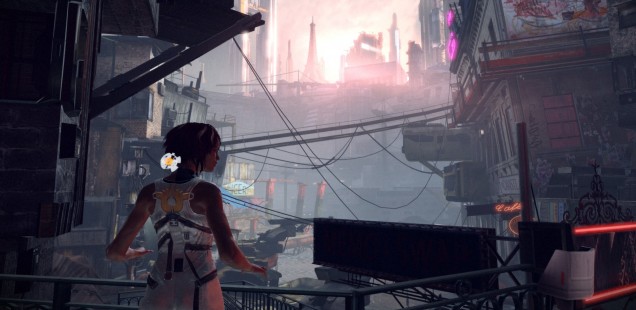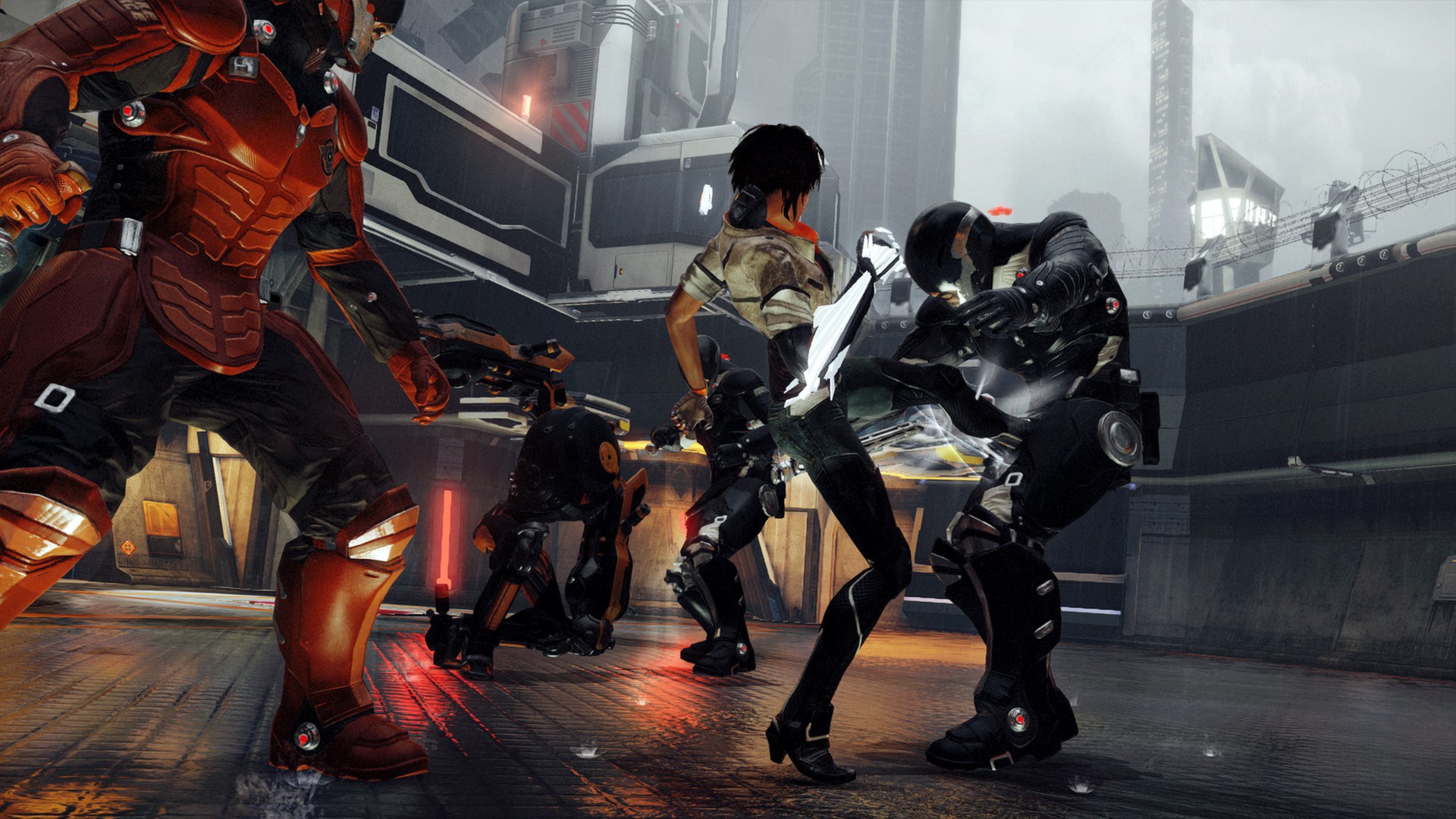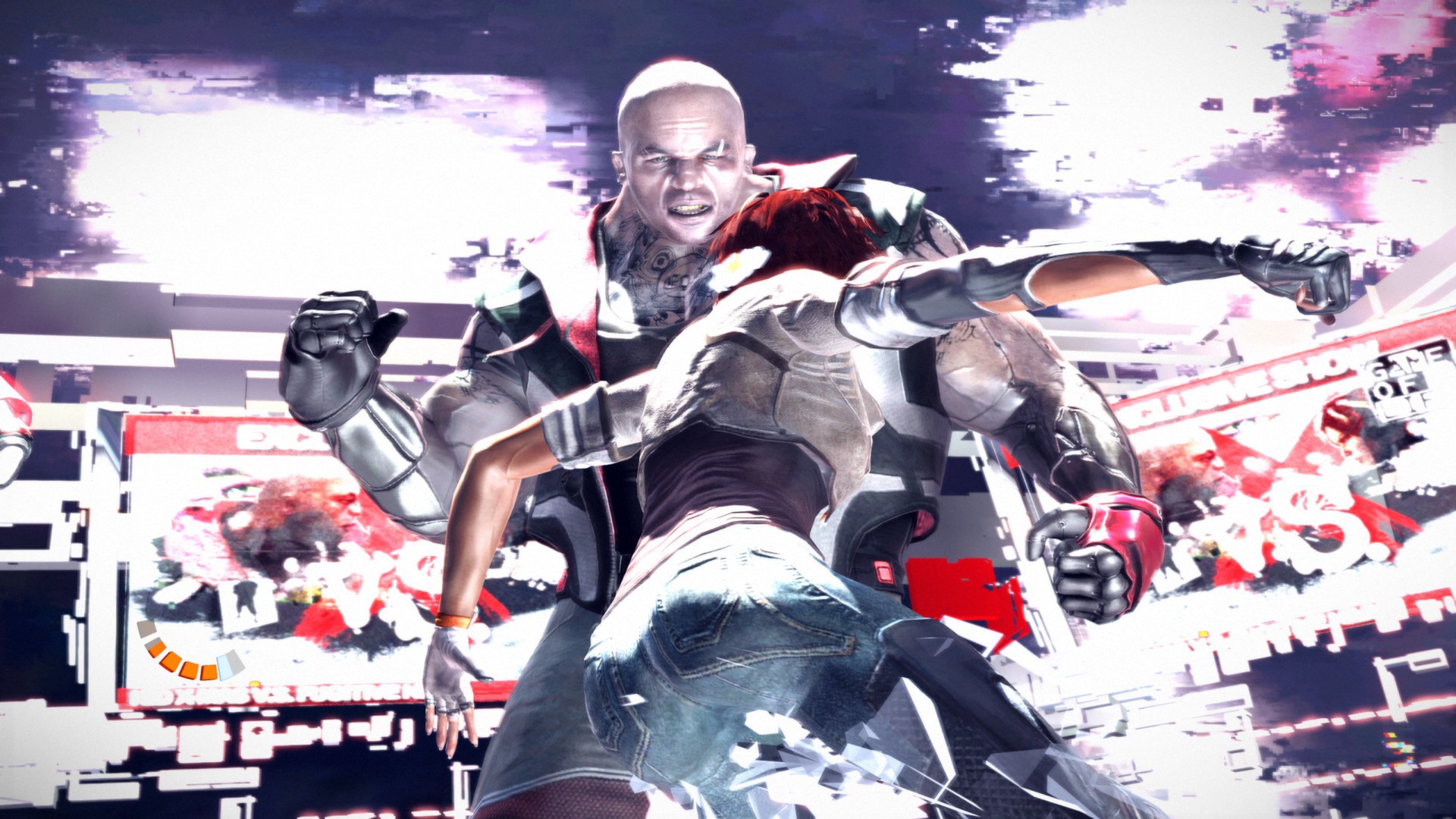
Full Disclosure: Remember Me
Taylor Hidalgo admits to his biases.
Full disclosure: I have read a number of positive reviews of Remember Me, including a number of editorial pieces that covered in some detail my favorite aspects of the game’s story. Given that, the sections of the game I’ve praised were informed by multiple opinions, including my own pre-existing sci-fi biases.
Among which are a fondness for technological empires and corporatocracies. The latter of which I’ll cover later. If I had to give it a root, I would inevitably name Star Wars and Star Trek, both of which were regular contributors to my television screen. Add to that the opportunity to own various toys and novels, there was an inevitable love of science-fiction technology. The idea of an all-powerful empire tackling a smaller grass-roots movement is an unshakable influence in my collective psyche. Even in the case of Star Trek, whose characters belong to a highly powerful space-faring empire, the Federation is still largely moving alone in uncharted reaches of space. Too rarely were their conflicts ever sized fairly for the crew of the various Enterprises, so it does feel like an overwhelming force against a smaller and out-gunned group.
And from those loves stemmed a very healthy history of games along that same trend. Titles like Ratchet and Clank, Jak and Daxter, and Assassin’s Creed all betray my personal tastes toward the gameplay familiar in Remember Me, with the platforming and climbing mechanics. Even Mirror’s Edge, which features a massive opposition in the form of the police force, has the same sort of familiar sci-fi elements without having precisely the same trappings.
Secondary Disclosure: I have reviewed Mirror’s Edge favorably, and the parallels are numerous enough to likely have colored my mechanical interest in the platforming sections of this game. Included in that is the player-friendly UI, though to a less significant degree.
Piggybacking on the Mirror’s Edge police force is a corporate security force, which contains hints of corporatocracy, a prevailing and enduring theme present in Remember Me. My love of corporatocracy stems from other sci-fi settings, with modern examples being films like Robocop and Dredd, and even games like Bioshock and Star Wars: Knights of the Old Republic. These have elements enough therein to inform my total feelings on the subject of corporate governments.
But each of these biases are fractions of the biases I hold for Capcom as a publishing company. My childhood, largely spent with Super Nintendo and Playstation games, is filled near endlessly with many different Capcom titles. In particular, though not precisely related, is Breath of Fire. Breath of Fire is a series that captured my imagination relentlessly as a child. I discovered a majority of the secrets through mindless exploration, tempered by a repetition of trial and error. The secret dragon, the optional bosses, and even probing most of the depth of the fishing system, all of which came from a love for Capcom’s final RPG series and the also sci-fi oriented Final Fantasy titles, though the science fiction in that series waited until later generations.
But on the topic of Breath of Fire, simply a joy of play that only childlike wonderment can really provide. There is no context for that love that adults can really grasp onto. There’s a wonderment of play, certainly, but not a depth of obsession. The intrigue of a setting realized and interactive seemed to be at its most heightened in the grasp of the first Breath of Fire title. Even though it was a very simple, and otherwise unadorned RPG, it was my childhood gaming obsession realized and made flesh. I can trace my love of RPGs to Breath of Fire, Final Fantasy, and Super Mario RPG. Chief among them being Capcom’s Breath of Fire.
Further, Breath of Fire IV is easily in my top 10 RPGs, if not my top 10 games.
Coming back full circle, Breath of Fire: Dragon Quarter returns to the science fiction setting, although much more dystopian than the former examples, which are largely allusions to utopian societies. However, the dystopian elements tend to match the slums of Remember Me rather handily, carrying with it the stigmas and unhygienic elements coalescing in a way that makes any game better than what it could be on its own.
However, closer to the science-fiction setting of Remember Me comes my childhood of action platforming. In particular, the Megaman X series is another Capcom series that filled my childhood. Similar to Breath of Fire, Megaman X was something of a treasure trove of youthful attempts at discovery. The secret powers, particularly those in Megaman X and Megaman X3, were a large part of my childhood wonderment with the hidden.
Which speaks nothing of the mechanical interaction that has always been the strongpoint of the Megaman series. In short, my love of action and platforming can be traced in large part back to my childhood hours spent with Mario and Megaman both. Predominantly Megaman X.
Further still, given the female protagonist, there will be hints of my love of Bioware protagonists in this review. A bias that is only furthered by the sci-fi elements rampant in Mass Effect, including several corporate planets in Mass Effect 1 and 2.
Given full awareness of that, I should note that Remember Me is, in all likelihood, the sort of game one cannot review on its merits alone, as its influences and equivalents span across multiple media platforms and across genres that are close to home to a majority of gamers.
This is only exacerbated by the coverage Remember Me received when the developers revealed their difficulties in finding a publisher due to their female protagonist and romantic scenes. That coverage colored the way most gamers see both the game and the publisher, for better or worse. Myself included.
Oh, and I’ve both purchased and pre-ordered a Capcom title before, so I at one time had a personal stake in the continuation of the company, in at least as far as my nebulous money was concerned.
Now on to the review:
Despite its theme and title, Remember Me was largely forgettable.
Taylor Hidalgo is a writer by hobby, grasping at the edges of professional work. He’s a fan of the sound of language, the sounds of games and the sound of deadlines looming nearby. He sometimes says things on Twitter and his blog.

